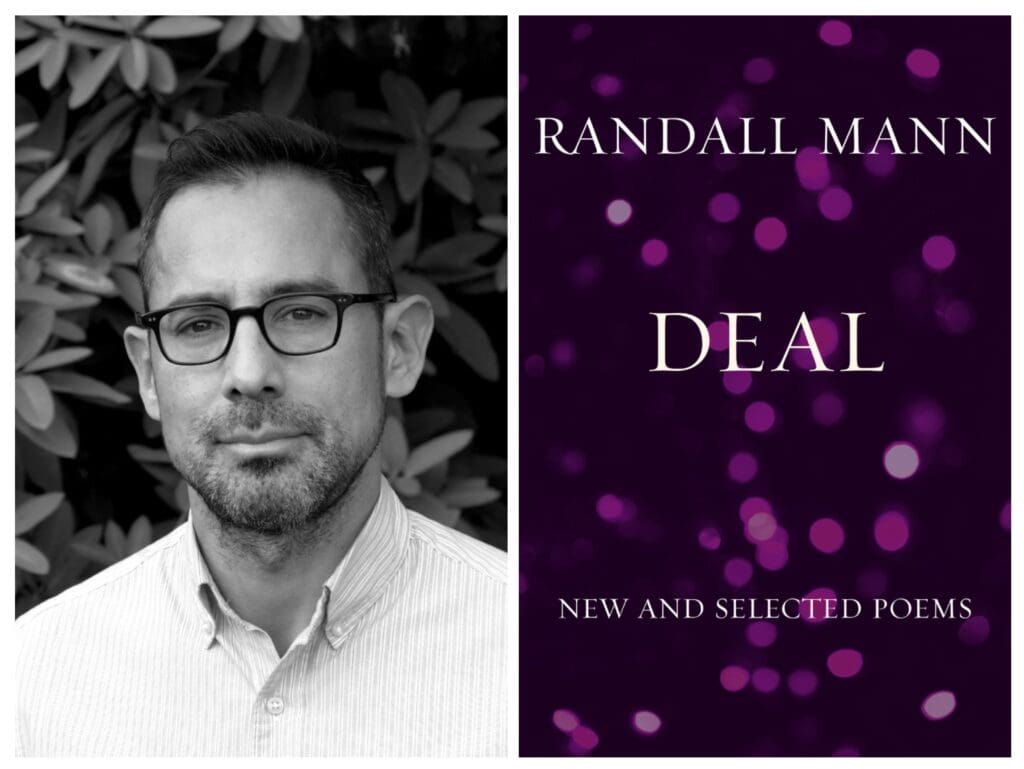With an illustrious career spanning over several acclaimed poetry collections, Randall Mann is a luminary in contemporary poetry. His impressive body of work includes Complaint in the Garden (2004), which garnered him the prestigious Kenyon Review Prize in Poetry, and Breakfast with Thom Gunn (2009), a finalist for both the Lambda Literary Award for Gay Poetry and the California Book Award. The depth of Mann’s talent is further showcased in Straight Razor (2013), a Lambda Literary Award finalist, and Proprietary (2017), a finalist for both the Northern California Book Award and Lambda Literary Award. Now, with Deal: New and Selected Poems, Mann presents a mid-career reflection, allowing readers to witness the evolution and versatility of his poetic voice.
San Francisco serves as a constant source of inspiration for Mann; the city’s history, art, and tech culture permeates his verses. Throughout Deal, readers are immersed in a dynamic exploration of the city’s ever-changing landscape. From one line to the next, San Francisco itself emerges as a character, shaping Mann’s poetic sensibilities and infusing his work with a distinct sense of place.
Among the notable additions to this collection are new poems such as “A Walk in the Park” and the titular “Deal.” These pieces delve into a culture steeped in pseudo-corporate doublespeak. Juxtaposed with Mann’s earlier works (such as the sestina “The Mortician in San Francisco,” a poignant piece inspired by his friend Tom Halloran, a gay man who prepared the body of Dan White, Harvey Milk and George Moscone’s murderer, for burial in 1985), the poems are a captivating glimpse into the city’s evolution over time. The interplay of old and new reflects the shifting landscape of both San Francisco and Mann’s own poetic vision.
And while Deal continues Mann’s explorations of love, desire, identity, and the complexities of queer experience—hallmarks of his poetic repertoire, it is his meticulous attention to detail and command of poetic form that truly distinguishes his work in this collection. Mann’s verses resonate with emotional depth and intellectual acuity, carrying a weight that leaves a lasting impact on the reader.
One standout piece in Deal is “Queen Christina,” almost unchanged from its original printing. Mann does not mince words in this sonnet, which reads almost as an elegy but demonstrates his economic use of language even while describing something as heartbreaking as the near-death of a sick man, celebrating “his final Pride.” The final couplet reads:
We never left his Castro flat. His rhinestone
glittered, and everywhere, the smell of cologne.
Deal is a testament to Mann’s ability to encapsulate profound moments and emotions within the confines of his carefully crafted verses, leaving readers in their own secondhand swirls of that cologne—remembering San Francisco, queerness, and connection not only as it once was, but as it will be.

